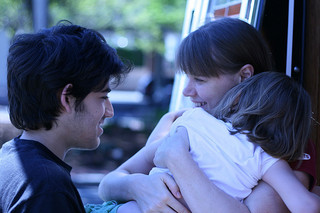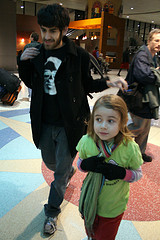And sad. President Clinton was a impressively smart man, and in this interview he shows it off in spades, able to call to mind statistics and rationales for policies without any aid. He’s a statesman, in the most classic sense of the word. And Amy Goodman is a journalist, in the best sense of that word.
But I think what is most remarkable looking back on his words 13 years later, is that everything he talked about is worse, under both the Republicans and the Democrats. That the gains he crowed were illusory, the economy he pinned so many hopes on had been a pyramid balanced on its tip that could last only so long. The reforms to come he spoke of weren’t just abandoned by the opposition, but by his own party, after he had deferred them himself, always “waiting on reports.” Everything, every single point he made, however elegantly made by this most skilled of politicians and speakers, every course of action he talked about, has all ended in total failure. From ending racial profiling (which Hillary was working on in New York) to New York’s shameful Stop and Frisk, unemployment is of course ridiculously high, schools failing, racism worse, healthcare costs higher than ever, Mexico is a basket case, the private prison system has reinstated slavery largely based on race. Cuba is still under embargo. Since them we’ve gotten black sites, Gitmo, endless wars. We’ve gone from secretive banking corruption to openly refusing to enforce the law against the masters of our economy, who commit fraud routinely, while violently suppressing the growing dissent on the streets. The failure of this system is so total that only insanity can still profess faith in it.
And not only is Leonard Peltier still in jail, this Democratic president has matched his unprecedented secrecy and persecution of whistleblowers with absolutely no pardons.
Amy Goodman is still doing good work, though.

